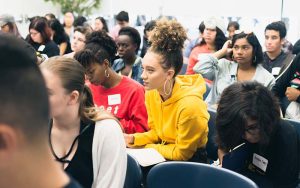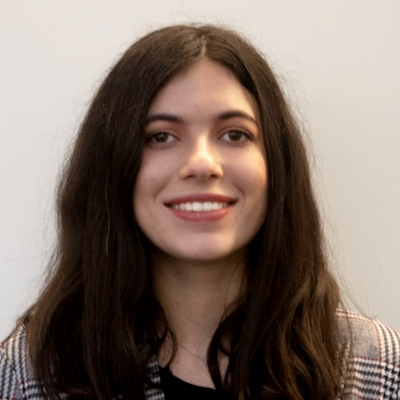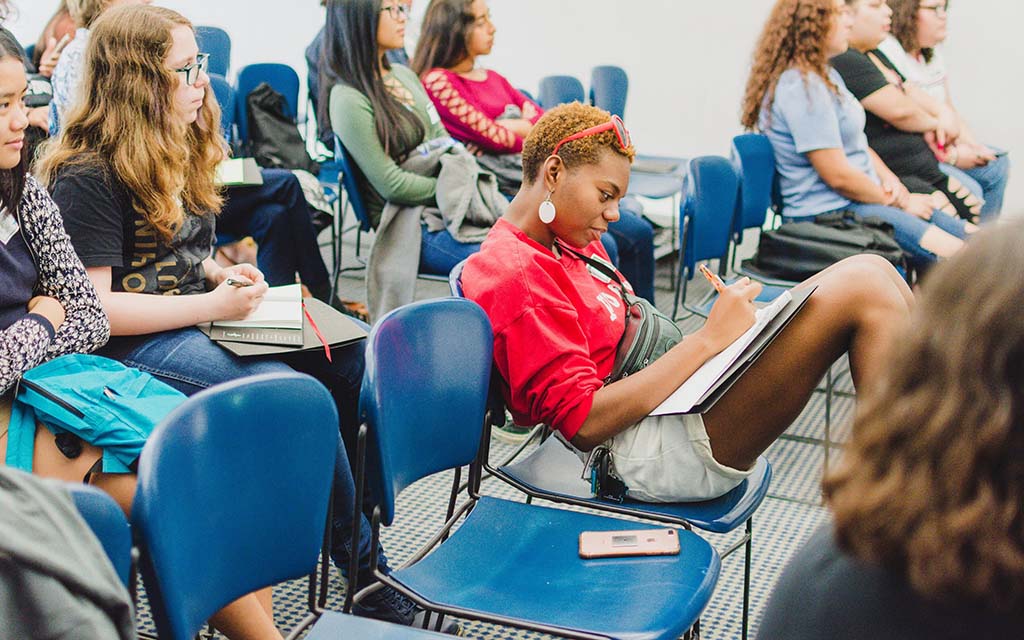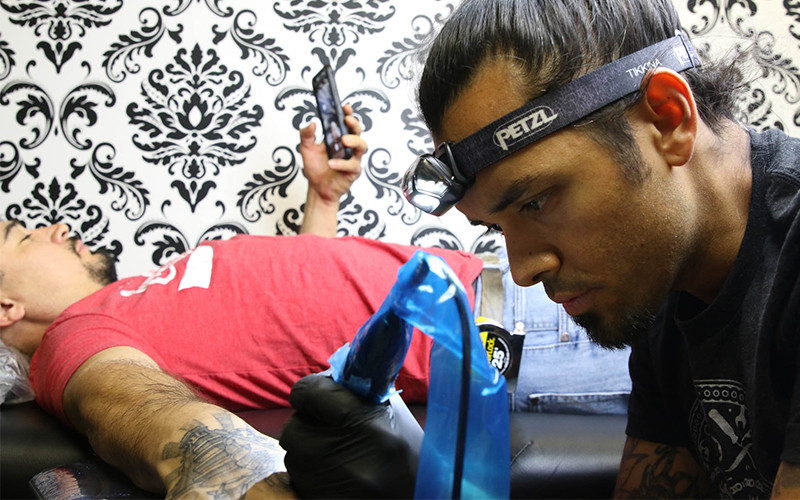LOS ANGELES – Poetry never interested Robin Power. As a high school teacher, he taught it, but it wasn’t his thing.
Then came Get Lit-Words Ignite, a program that encourages students to read poetry of their choosing, or write and perform their own individual work. It’s a contrast to having teachers choose poems and read them to the class.
No dead poets here. Get Lit puts the students in charge.
“It’s something so cool,” said Power, who teaches at Larchmont Charter School near downtown LA. “I didn’t have that experience once with poetry until we did the Get Lit program.”
Get Lit is a nonprofit founded in 2006 by Diane Luby Lane, an actor with television credits who understands the power of reciting poetry. She developed the curriculum and has shared it with the world, including in a July appearance on a TedX program. She also created the Get Lit Players and a poetry event, the Get Lit Slam, according to her website.
Get Lit has “teaching artists,” performers who visit schools to read poems aloud to students in dramatic fashion in hope of inspiring their creativity. Although the online program is available nationally, Get Lit is in discussions with districts around the country, including in Arizona, about expanding its in-person program, said Mason Granger, deputy director of Get Lit.
Get Lit is designed to provide a creative outlet for teachers and students via spoken-word poetry and other media, such as film and podcasting.
Students have produced mixtapes, podcasts and screenplays, and they can compete in poetry contests before live audiences.
Get Lit students who choose to perform a poem can select from the classic works of Emily Dickinson and Robert Frost, or from such contemporary poets as Kendrick Lamar and Maya Angelou.
Students pick their poem from an online anthology. They can check out the poem’s length, style, the literary period in which it was written and more about the life of the poet. They can even see a video of a dramatic reading of the poem.

Students watch a session of Get Lit-Words Ignite, which aims to boost interest in poetry. Students can write and perform their own poetry or choose works by many famous poets. (Photo by Erin Marie Miller)
Students can spread their love of poetry and narrative through the Get Lit virtual platform called Uni(verse), which helps teachers and students connect with others across the country and the world.
“What a gift to have something like that come alive and be so meaningful, and then get (students) to think, ‘Oh, well, poetry is a force, you know, a force of expression for change,’” Power said.
For some, it’s a broadening experience.
“I had a lot of stage fright,” said Avery Hipolito, one of Power’s high school students at Larchmont. “And I think Get Lit really helped me come out of my shell and be able to share my words to people.”
Get Lit is designed to help students discover their voice in a supportive environment.
“Honestly, poetry has become my outlet to express myself,” said Sophia Bazini, another of Power’s students. “And it’s also been a way that I’ve been able to make so many connections and friendships, which is really cool.”
Get Lit also aims to increase student literacy. That’s important in a state like California and Arizona, which score lower than many others in reading literacy. In 2019, California and Arizona fourth-graders, for instance, had subpar performance compared to students in the nation overall, according to the National Assessment of Educational Progress.
The coronavirus pandemic, which forced many students to suspend attending in-person learning, deepened the problem in California. The Los Angeles Times reported this month that 58% of the students in the Los Angeles Unified District did not meet standards in English.
As a result, Power and other teachers are delighted with Get Lit, which helps keep students engaged, transforming a tedious, book-centric classroom session into one filled with open discourse, smiles and laughter.
“How could they not be more engaged,” Power asked, “if they are writing and performing poetry, seeing their peers perform and compete, going in person to a poetry competition where teenagers are pouring their heart out onstage and writing about real topics and crying?”
Dottie Burkhart, a teacher at Mark Keppel High School in Alhambra, California, also praised the curriculum.
“Students are not only engaged with poetry but engaged with their own stories,” she said.
One prominent poetry professor, reached for comment, expressed hope that it can.
DeSales Harrison, who teaches at Oberlin College, said Get Lit could provide an alternative avenue for opening a young person’s world to poetry. It has the power to surprise and delight students with a newfound relationship with poetry – a “really wacky and wild experience you never could have anticipated yourself,” he said.
He went on to say, “My hope is that at some point in the future, people can discover the pleasure of having the book and have the pleasure of the company of the poet in the way that we enjoy the company of the novelist or the company of the podcast.”


